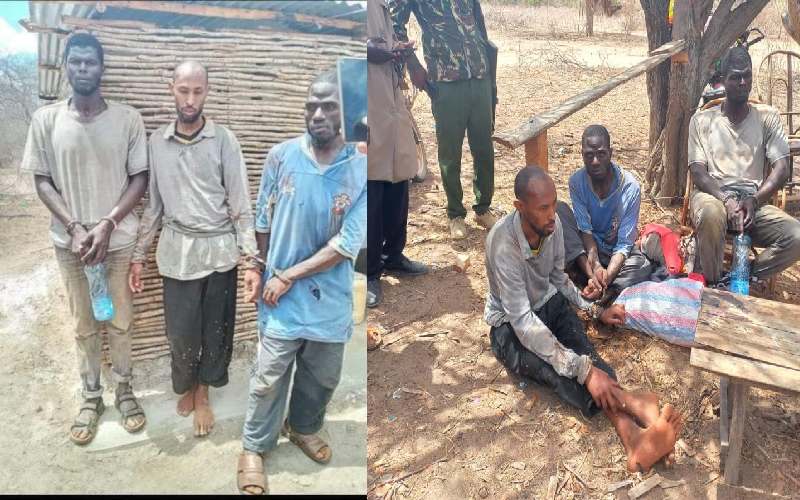×
The Standard e-Paper
Fearless, Trusted News

The three Terror convicts after they were arrested in Kitui.
About five kilometres from Kamuluyuni market, deep in the bowels of Mwingi East and about 90 kilometres from the Tana River County border lies a huge swathe of desolate and sun-baked uninhabited forest.